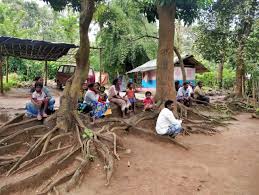Decode Politics: Why a forest rights order has sparked differences between Chhattisgarh govt depts

A recent forest rights order in Chhattisgarh has led to growing differences between key departments of the state government. While the move was intended to empower tribal communities and recognize traditional forest dwellers’ rights, it has instead triggered an internal tug-of-war between the forest department and the revenue department, exposing deeper political and bureaucratic complexities.
What Is the Forest Rights Act (FRA)?
Passed in 2006, the Scheduled Tribes and Other Traditional Forest Dwellers (Recognition of Forest Rights) Act, commonly known as FRA, aims to recognize and vest forest rights in tribal and forest-dwelling communities who have traditionally lived in and depended on forests.
Key provisions include:
- Individual rights to land cultivated by forest dwellers
- Community rights to use, manage, and conserve forest resources
- Habitat rights for particularly vulnerable tribal groups (PVTGs)
The Trigger: New Order on Recognizing Forest Land Rights
The Chhattisgarh Tribal Welfare Department recently issued a circular to recognize forest rights claims using revenue maps instead of only forest department maps. This is aimed at:
- Speeding up the recognition of pending land claims
- Ensuring rightful ownership for tribal communities
- Bringing parity with land records maintained by the revenue department
Departmental Clash: Forest vs Revenue
The circular, however, sparked opposition from the forest department, which claims:
- It violates existing FRA procedures
- It may lead to encroachments and loss of forest land
- There’s a risk of misidentification or overlapping claims
The revenue department, in contrast, supports the order, citing:
- The need to fast-track land titles for thousands of pending claims
- Alignment with updated satellite-based revenue maps
- Promotion of tribal rights and welfare
Politics Behind the Bureaucratic Battle
The issue is more than administrative—it has political implications:
- Congress-led Chhattisgarh government has been under pressure to deliver on tribal welfare promises ahead of local body elections.
- Internal rifts between bureaucrats loyal to different power centers are becoming visible.
- Allegations suggest that some officials are sabotaging reforms by delaying implementation under the guise of technical objections.
Ground Impact: Tribals Caught in the Crossfire
For tribal communities:
- The delay and confusion affect their land ownership, access to government schemes, and legal protection from eviction.
- Many say they’ve waited years for titles under FRA and now face fresh bureaucratic hurdles.
- Activists fear that if not resolved, this conflict could erode trust between tribal populations and the government.
Legal Uncertainty and the Road Ahead
- Legal experts note that FRA gives primacy to gram sabhas (village councils) and recognizes community rights—but lacks clarity on inter-departmental jurisdiction.
- A state-level coordination mechanism has been proposed to resolve disputes and clarify mapping processes.
Conclusion: A Test of Tribal-Centric Governance
The forest rights dispute in Chhattisgarh is a reminder that well-intentioned laws need effective coordination. Without alignment between departments, genuine tribal empowerment risks becoming a bureaucratic deadlock.
This issue also highlights the political stakes in managing forest resources and the importance of transparent, inclusive governance that balances conservation with the rights of traditional dwellers.






